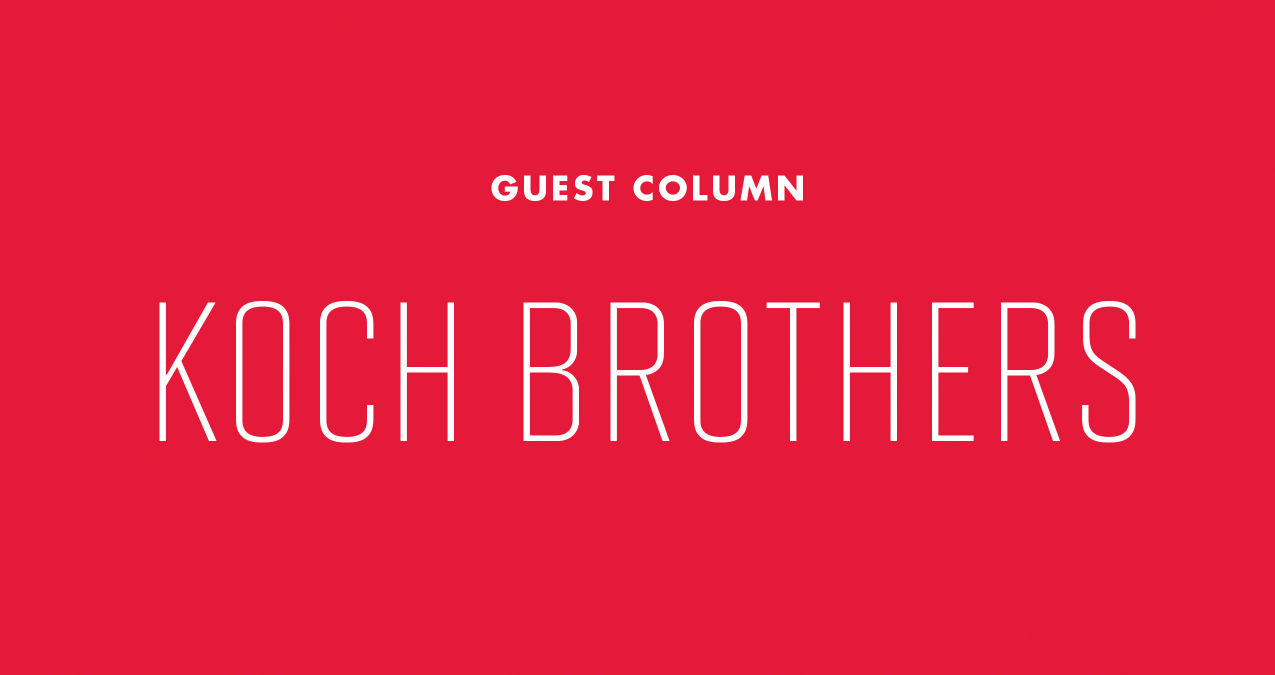
Koch brothers
Implicit, but nonetheless fundamental, to the acceptance of resources from an institution or individual is the acceptance of the values of that institution or individual. In short, there is never an exchange of funds without an exchange of ideology.
This implicit exchange is sometimes made explicit, as was the case with Florida State University in 2011. According to the Center for Public Integrity, the Charles Koch Foundation promised to provide $1.5 million to Florida State’s economics department.
This donation, however, came with an egregious demand: The Koch Foundation claimed the right to select a committee that would retain full control over hiring decisions and annual evaluations. The economics department caved without much of a fight, setting a disturbing and dangerous precedent of corporate encroachment into academic freedom.
This university announced on Oct. 27 that the Charles Koch Foundation would be donating $1 million to the business school to partially fund the creation of the Ed Snider Center for Enterprise and Markets, to which the Snider Foundation donated $5 million. Thankfully, a Diamondback article from the same day quotes university President Wallace Loh as saying, “We make the hiring independently.”
But donor separation from hiring decisions does not at all mean that the Koch money comes with no strings attached. While hiring decisions may be made independently of the donors, nothing has been said about curriculum decisions.
Furthermore, the Koch donation has violated a fundamental principle of open dialogue in higher education. By donating funds to the construction of a center whose political agenda is explicitly neo-liberal, the Koch Foundation is attempting to push a more conservative agenda at this university. Such constriction of dialogue should not be condoned on any university campus, and students at this university should not stand for the callousness of the Charles Koch Foundation or our campus administration.
Regardless of biases exacerbated by the Koch donation, this university has dug itself into an ethical hole by accepting money from one of the most destructive private corporations on the planet.
The Charles Koch Foundation is funded by the personal fortunes of Charles and David Koch, the chief executive officer and executive vice president, respectively, of Koch Industries.
For decades, Koch Industries has ravaged ecosystems and economies through a business model that favors profit margins over the well-being of local communities. A recent piece in Rolling Stone by Tim Dickinson describes in detail how the Koch brothers amassed their fortune. Highlights of their rise to power include pleading “guilty to five felonies in federal court, including conspiracy to commit fraud,” the conclusion of a Senate committee “that over the course of three years Koch ‘pilfered’ $31 million in Native oil,” “a 97-count indictment over claims [Koch Industries] violated the Clean Air Act by venting massive quantities of benzene at a refinery in Corpus Christi” and the explosion of a severely decrepit pipeline and consequent incineration of two Texan teens, resulting in what was then the largest wrongful-death decision in U.S. history.
In accepting the donation from the Charles Koch Foundation, this university is condoning the historically criminal, destructive and treacherous behavior of Koch Industries and its leaders.
The Student Labor Action Project at this university is currently working with other student activist leaders and organizers to develop creative methods of dissent to combat the unethical behavior of our campus administration and its Koch funders. We implore students to actively speak out against any ties between our university and destructive corporations such as Koch Industries.
Chris Bangert-Drowns is a sophomore biochemistry major and member of the Student Labor Action Project. He can be reached at chrisbd0917@gmail.com.



